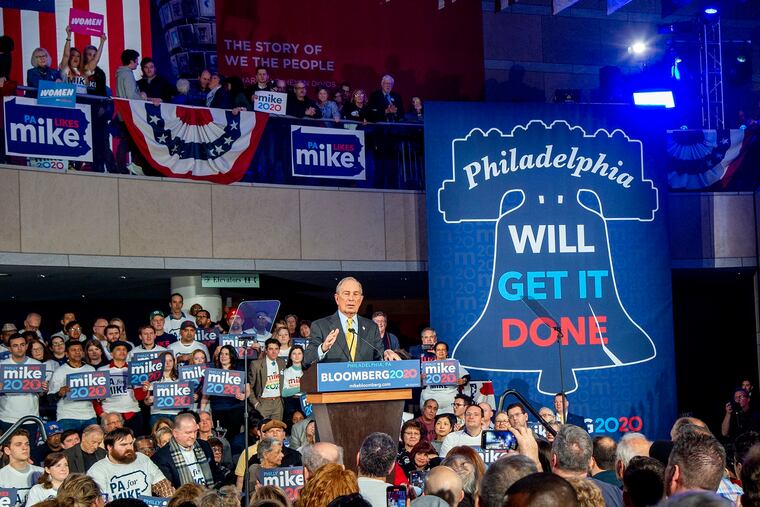Mike Bloomberg’s ad spending in Pennsylvania is getting bigger and bigger
Bloomberg’s massive advertising campaign — unprecedented in political marketing — has blanketed the country as the former Republican tries to win the Democratic presidential nomination.

The Mike Bloomberg money flood shows no sign of drying up anytime soon.
The billionaire Democratic presidential candidate has been ramping up his advertising in Pennsylvania. A new $355,000 ad buy for the week of March 3 means Bloomberg is poised to break $20 million spent on television and radio advertising in the state. That doesn’t include digital ads on platforms such as Facebook and Google.
Initially averaging more than $1 million a week when he joined the race in November, the former New York City mayor spent more than $2 million a week in Pennsylvania in February, according to the ad-tracking firm Advertising Analytics. The vast majority was spent on television ads across the state’s six media markets.
Almost half of the money the campaign has spent on Pennsylvania advertising has gone to the Philadelphia market, which is both the most expensive and contains the biggest share of the state’s Democratic voters. About one-third of Bloomberg’s ad spending has gone to the Pittsburgh and Harrisburg markets combined.
Bloomberg’s massive advertising campaign — unprecedented in political marketing — has blanketed the country as the former Republican tries to win the Democratic presidential nomination with a novel strategy of skipping early states and focusing instead on the largest states that deliver the most delegates.
In addition to challenging traditional ideas about momentum and how to win the nomination, Bloomberg’s strategy makes it much more likely that Pennsylvania becomes crucial to victory. The state’s April 28 primary election comes late in the race. But the field could remain crowded even after next week’s Super Tuesday elections, making Pennsylvania key to winning the nomination this year.